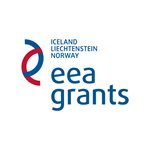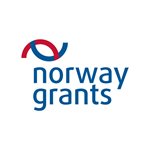Konference Znakové jazyky ve vysokoškolském vzdělávání a odborné publikace ve znakových jazycích
Termín konference
čtvrtek 16. 6. 2016, od 10 do 17 hodin
Místo konání
Česká republika, Brno, Masarykova univerzita, Komenského nám. 2, místnost č. 200 (2. nadzemní podlaží)
Program
A. Sign Languages in Higher Education (10–13 hodin)

 The paper presents the position of ČZJ speakers at Czech universities in a broader context, including the historical context. It discusses the relevant legislative frameworks and the position of counselling and service centres at Czech universities. The paper further mentions the emergence and role of the Association of Service Providers for University Students with Special Needs, current statistical data concerning the number of students with special requirements, and the conditions of financing the increased requirements connected with their studies (esp. of students with hearing impairments). Finally, the authors examine questions related to sign language interpretation at universities in a historical context as well as with regard to interpreter training.
The paper presents the position of ČZJ speakers at Czech universities in a broader context, including the historical context. It discusses the relevant legislative frameworks and the position of counselling and service centres at Czech universities. The paper further mentions the emergence and role of the Association of Service Providers for University Students with Special Needs, current statistical data concerning the number of students with special requirements, and the conditions of financing the increased requirements connected with their studies (esp. of students with hearing impairments). Finally, the authors examine questions related to sign language interpretation at universities in a historical context as well as with regard to interpreter training.
 The sign language situation in Norway. Signing students. The rights of students using Norwegian Sign Language. The situation today. Where are we going?
The sign language situation in Norway. Signing students. The rights of students using Norwegian Sign Language. The situation today. Where are we going?

 Deaf students and sign language interpreters at university level need signs for technical terms. In Austrian Sign Language (ÖGS) there are no signs yet for many of these terms. For this reason GESTU has created a sign language dictionary for technical terms as needed by the students. In this project the students themselves gather existing signs and develop new ones for their own use and for the use of interpreters and the sign language community. The students are being assisted by experts in the respective fields, by linguists, interpreters and native signers.
Deaf students and sign language interpreters at university level need signs for technical terms. In Austrian Sign Language (ÖGS) there are no signs yet for many of these terms. For this reason GESTU has created a sign language dictionary for technical terms as needed by the students. In this project the students themselves gather existing signs and develop new ones for their own use and for the use of interpreters and the sign language community. The students are being assisted by experts in the respective fields, by linguists, interpreters and native signers.
Roman Vojtechovský: SPJ Speakers at Slovak Schools (ČZJ)
 The current status of interpretation for the deaf in Slovakia. The author points the current state of interpretation for the deaf in Slovakia. The author describes the situation of sign language interpreting at universities. The author gives basic information about the laws, which are writing about interpreting for the deaf.
The current status of interpretation for the deaf in Slovakia. The author points the current state of interpretation for the deaf in Slovakia. The author describes the situation of sign language interpreting at universities. The author gives basic information about the laws, which are writing about interpreting for the deaf.
 This presentation will first, briefly outline the situation regarding the insufficient number of interpreters in the Czech Republic. Secondly, it will describe the establishment of the first educational program at the Vocational School level, which will operate at the School for the Deaf in Hradec Kralove. Finally, the presentation will detail the structure of the program, the conditions for admission and the main goals.
This presentation will first, briefly outline the situation regarding the insufficient number of interpreters in the Czech Republic. Secondly, it will describe the establishment of the first educational program at the Vocational School level, which will operate at the School for the Deaf in Hradec Kralove. Finally, the presentation will detail the structure of the program, the conditions for admission and the main goals.
 In the talk, we give an overview of our ongoing project CoUnSiL (Collaborative Universe for Sign Language) -- the videoconferencing environment for remote interpreting of sign language. The work is motivated by the lack of qualified interpreters capable of interpreting specialized courses at universities. Opposed to common videoconferencing tools such as Google Hangouts or Skype, CoUnSiL ensures low latency and sustainable framerate of multiple video and audio streams of all connected participants. We also overview the underlying concepts of the videoconferencing environment as well as the user interface of the client applications.
In the talk, we give an overview of our ongoing project CoUnSiL (Collaborative Universe for Sign Language) -- the videoconferencing environment for remote interpreting of sign language. The work is motivated by the lack of qualified interpreters capable of interpreting specialized courses at universities. Opposed to common videoconferencing tools such as Google Hangouts or Skype, CoUnSiL ensures low latency and sustainable framerate of multiple video and audio streams of all connected participants. We also overview the underlying concepts of the videoconferencing environment as well as the user interface of the client applications.
B. Desktop Publishing in Sign Languages (14–16.30)
Svatoslav Ondra, Radek Pavlíček: Hybrid Books (English)
 Hybrid Book is a document format which was created by Masaryk University and has been used to publish digital documents at the University since 2002. It was originally a digital text synchronized with an audio recording and navigable through its hierarchical structure, primarily intended for students/users with visual impairments. Over the last ten years, the Hybrid Book has developed into a mature document format enabling an undistorted access to information to students and other users with various disabilities (visual or hearing impairment, learning disabilities etc.) as well as users without disabilities find this document format advantageous for its multi-modality. As an electronic document type, the Hybrid Book belongs to the family of documents with synchronized multimedia content – other representative of that publication type could be for example the Daisy DTB format. More rich multimedia equipment and aiming to wider target group of users, however, predestinate the Hybrid Book to slightly another way of use.
Hybrid Book is a document format which was created by Masaryk University and has been used to publish digital documents at the University since 2002. It was originally a digital text synchronized with an audio recording and navigable through its hierarchical structure, primarily intended for students/users with visual impairments. Over the last ten years, the Hybrid Book has developed into a mature document format enabling an undistorted access to information to students and other users with various disabilities (visual or hearing impairment, learning disabilities etc.) as well as users without disabilities find this document format advantageous for its multi-modality. As an electronic document type, the Hybrid Book belongs to the family of documents with synchronized multimedia content – other representative of that publication type could be for example the Daisy DTB format. More rich multimedia equipment and aiming to wider target group of users, however, predestinate the Hybrid Book to slightly another way of use.

 The main topic of this paper is to present the project „Bible bez hranic“/ „The Bible without limits“. The project deals with translation biblical texts into Czech Sign Language in cooperation of several teams. It will be explain the basic principles of translation process. It will be outline some specific language and cultural problems which occur during the translation.
The main topic of this paper is to present the project „Bible bez hranic“/ „The Bible without limits“. The project deals with translation biblical texts into Czech Sign Language in cooperation of several teams. It will be explain the basic principles of translation process. It will be outline some specific language and cultural problems which occur during the translation.
 Statped is a national service for special needs education managed by the Norwegian Directorate for Education and Training. One of Statped’s tasks is to develop learning materials for deaf and hard of hearing pupils in kindergarden, primary and secondary school, high school and adult training. The learning materials must be adapted to different contexts; mainstream teaching, schools for the deaf and hard of hearing and long distance teaching.
Statped is a national service for special needs education managed by the Norwegian Directorate for Education and Training. One of Statped’s tasks is to develop learning materials for deaf and hard of hearing pupils in kindergarden, primary and secondary school, high school and adult training. The learning materials must be adapted to different contexts; mainstream teaching, schools for the deaf and hard of hearing and long distance teaching.
Our teaching materials is a multimodal text, not only featuring sign language, but also animations, pictures and Norwegian written text. The content is presented in different ways and it seems like the multimodality helps the pupils to understand the content. Two MA studies lead to a number of questions concerning learning materials in sign language. One of the questions is how to read a static versus a dynamic text.
 The course book also includes its translation into Czech Sign Language. It thus provides information not only for students who are hard-of-hearing but also for students who prefer Czech Sign Language as the means of communication. The course book enables students to deepen their knowledge and prepare themselves independently for the Maturita exam. Due to the project, these listed course books are already available: Prosthetics Technology, Topography and Morphology of Teeth and Dental Hygiene.
The course book also includes its translation into Czech Sign Language. It thus provides information not only for students who are hard-of-hearing but also for students who prefer Czech Sign Language as the means of communication. The course book enables students to deepen their knowledge and prepare themselves independently for the Maturita exam. Due to the project, these listed course books are already available: Prosthetics Technology, Topography and Morphology of Teeth and Dental Hygiene.
Registrace a poplatky
Účast na konferenci je zdarma, přihlášky zasílejte prosím do 12. 6. 2016 na adresu prihlaska@teiresias.muni.cz; počet míst je omezen.
Konferenční jazyky
Český znakový jazyk (ČZJ)
Norský znakový jazyk (NTS)
Mezinárodní znakový systém (IS)
Angličtina
Bude zajištěn simultánní přepis mluveného slova (v angličtině).
Texty abstraktů a prezentací budou v angličtině.
Konference se koná s podporou grantu z programu Spolupráce škol a stipendia Norských fondů a fondů EHP


www.eeagrants.org
Videozáznamy z konference
Fotogalerie